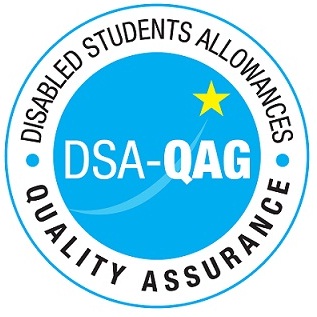The Disabled Students Allowance (DSA) is a Government funding in United Kingdom accessible to students in Higher Education, initially recognized by Department for Education and Skills.
Disabled Students’ Allowances (DSAs) are non-repayable scholarships which help with extra costs which a disabled student acquires in relation to their study in higher education. DSAs at present give a range of support. This comprises the purchase of laptops and expert equipment, provision of support workers and help with extra travel costs. Support is not means tested and is obtainable for qualified full-time and part-time students, studying at undergraduate and postgraduate level.
In 2011 to 2012 DSAs given over £125 million of extra support for over 53,000 full-time undergraduate higher education students, contrasted with £91.7 million awarded to 40,600 students in 2008 to 2009.
This is announced earlier this year that maximum scholarships for full-time, part-time and postgraduate students with disabilities will be sustained at 2014 to 2015 levels in 2015 to 2016. Number of changes expected at modernising present system, subject to Equality Impact Assessment. This will make sure that limited public funding available for DSAs is targeted in best way and to get value for money, as ensuring those most in necessitate get assist they need.
DSAs have been obtainable since 1974, with four separate allowances being introduced in 1990. Present arrangements don’t identify technological advances, increases in use of technology or introduction of Equality Act 2010. It has been almost 25 years as DSA scheme was reviewed, unlike other areas of student support.

David Willetts, Minister for Universities and Science give proposals which are outlined below look to rebalance responsibilities between government funding and institutional support. We will look to HEIs to play their function in supporting students with gentle difficulties, as part of their duties to give sensible adjustments under Equality Act. These are partially preventive duties and we expect HEIs to set up changes which can further decrease reliance on DSAs and aid mainstream support. We will be conferring with specialists in sector to make sure that Specific Learning Difficulties (SpLD) students understand kind of support they can expect to receive and who will provide it.
As the higher education student living in England, can apply for Disabled Students’ Allowance (DSA) if you have a:
Disability
Long-term health condition
Mental health condition
Specific learning difficulty such as dyslexia
For support you get depends on the individual requirements and not on income.
Just the once your eligibility for DSAs is validated, Student Finance England will enquire you to contact the assessment centre to work out what assistance you require.
How DSAs are rewarded
Money is paid either into bank account or directly to organisation giving the service or equipment.
Eligibility
You can apply for Disabled Students’ Allowances (DSAs) if you have a:
Disability or long-term health state
Mental health situation
Specific learning difficulty like dyslexia or dyspraxia
You should also:

Be the undergraduate or postgraduate student (Comprising Open University or distance learning)
Have condition which affects the ability to study
Meet the criteria for student finance from Student Finance England
Studying on course which lasts at least a year
Who is not eligible?
You can not get DSAs from Student Finance England if you are:
EU student
Eligible for NHS Disabled Students’ Allowance (this is separate scheme)
Getting corresponding support from another funding source - e.g. from university or social work bursary
Proving you are eligible
You will not automatically get DSAs - you require proof of eligibility.
The main changes are set out below:
David Willetts also stated that we will pay for higher requirement or higher cost computers where student requires one only by virtue of their disability. We will no longer pay for standard specification computers or warranties and insurance related with them. We will no longer pay for higher specification and/or higher cost computers simply as of the way in which course is delivered. We are altering our approach to funding of a number of computer equipment, software and consumable items through DSAs which have become funded as ‘standard’ to most students.
Students with Specific Learning Difficulties will continue to get support through DSAs where their support requires are considered to be more difficult.
We will support most specialist Non-Medical Help. The changes in statement will apply to all full-time, full-time distance learning, part-time and postgraduate students applying for DSA for first time in respect of the academic year beginning on or after 1 September 2015. This gives enough time for us to work with institutions and stakeholders to make sure changes are initiated effectively.
Existing DSA students and DSA students for 2014 to 2015 entry will remain on present system of support for 2015 to 2016.